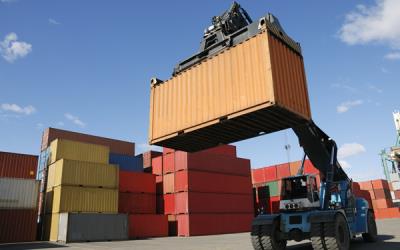Ghana recorded a negative trade balance in the first half of this year with a trade deficit of a little over US$73 million, a Bank of Ghana’s latest Statistical Bulletin revealed.
In January 2020, Ghana recorded a trade surplus of about US$308 million, which rose to US$482 million in February but dipped sharply to US57.4 million in March.
In May, Ghana imported goods worth an estimated US$1.24 billion as opposed to export of US$1.17 billion of items in the first half of this year. This led to a trade surplus of US$51.93 million.
So, what could be the cause of the downturn to a trade deficit?
The downturn is blamed on the coronavirus pandemic particularly on non-traditional exports.
Trade Deficit and Surplus
A trade deficit is an economic situation that occurs when a country imports more goods than it is exporting. The opposite is true for trade surplus. A trade deficit or surplus is thus calculated by subtracting the total value of goods being imported and exported.
A trade deficit typically occurs when a country is unable to produce everything it needs and as such, borrows abroad to pay for the imports. This is referred to as current account deficit. In the short run, trade deficit has positive impacts which includes improved standard of living since residents in the home country have access to a wide variety of goods and services at competitive prices and checks inflation since prices become competitive.
However, in the long run, trade deficits can lead to decreased job opportunities in some industries and harsh economic downturns.
In 2018, Dr Owusu Afriyie-Akoto, Minister of Food and Agriculture disclosed that Ghana spends over a billion dollars to import rice annually since 2015. This has posed varying issues to local rice farmers.
Following this trade deficit, Ghana’s economy could be in for bumpy ride since more dollars will be demanded to transact trade. This migh cause the Cedi to weaken and stimulate inflation in the long-run unless part of the country’s reserve is used to support the demand for dollars.
It is worthy to note that, Ghana achieved a trade surplus of at least US$1.1 billion in 2018. A first in the past 20 years.





